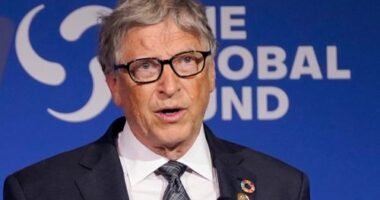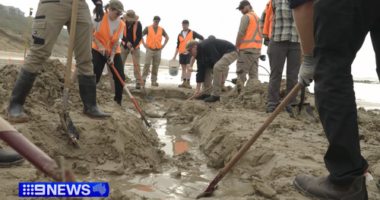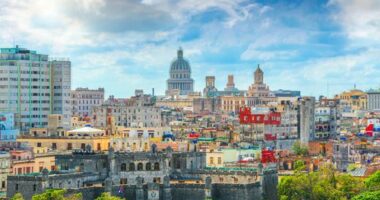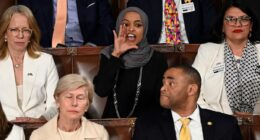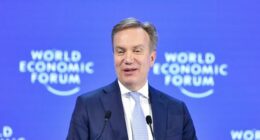Share this @internewscast.com
The historic new trade policy follows months of false starts to Trump’s so-called “reciprocal” tariff rollout and countless bilateral trade negotiations, a handful of which resulted in agreements that fended off even higher tariffs.
Trump and his economic advisers have celebrated the considerably higher tariffs that have already gone into effect, correctly noting that they have raised more than $100 billion in tax revenue without leading to catastrophic inflation or a recession, as some economists had feared.
The president is moving forward with new, significantly more aggressive tariffs that economists fear could exacerbate budding economic problems, including rising inflation and slowing job growth, that are just now becoming more apparent.
Here’s what to know about the tariffs:
Before today, virtually every country’s goods were subject to a minimum 10 per cent tariff. Now rates vary substantially from country to country.
An additional 21 countries also face levies greater than 15 per cent.
That includes several countries the US relies heavily on for a variety of goods, such as Vietnam (20 per cent), India (25 per cent), Taiwan (20 per cent) and Thailand (19 per cent).
That second tariff is slated to take effect on August 27.
Thirty-nine countries’ goods, as well as members of the European Union, are subject to 15 per cent tariffs, according to a list the White House published last week.
Besides Canada and Mexico, all other countries the US imports goods from will continue to face a minimum 10 per cent tariff, albeit with a few exemptions.
Goods from Mexico and Canada are exempt from tariffs if they’re compliant with the US-Mexico-Canada free-trade agreement.
If not, goods from Mexico are subject to 25 per cent tariffs, while goods from Canada are subject to 35 per cent tariffs, up from 25 per cent previously.
What’s the deal with the trade deals?
In most cases, they’re not exactly trade deals, per se, but rather rough sketches of ones that could take months, or even years, to finalise — assuming they don’t fall apart.
Over the past five months, Trump announced eight trade agreements.
Of those, only two — with the United Kingdom and China — have been formalised.
The agreement with China, which significantly lowered tariff rates both countries imposed on one another’s goods, expires on August 12. If both countries fail to act, rates could spike again.
Most agreements Trump announced involve trading partners committing to purchasing more American products, like oil, cars, Boeing airplanes, defence equipment and agricultural goods.
They also involve hundreds of billions of dollars worth of investments in American businesses.
But it’s unclear if the United States and other trading partners involved in agreements are on the same page about many of the proposed terms.
For instance, Japan’s Prime Minister Shigeru Ishiba and a lead Japanese trade negotiator, Ryosei Akazawa, both recently said many key details are still being worked out and are telling a vastly different story from Trump, who earlier this week said the country agreed to buy Ford F-150s.
Are any goods exempt from the new tariffs?
One notable exemption is smartphones, which aren’t subject to any of the new rates. Additionally, goods for which Trump imposed separate sectoral tariffs or ordered investigations that could result in higher rates won’t be stacked on top of country-specific “reciprocal” tariffs.
The EU sought to pre-empt those tariffs by negotiating a 15% tax on pharma exports to the US as part of the agreement announced with Trump. Other countries involved in trade agreements similarly are getting more favourable rates on certain sectoral tariffs.
There’s also a partial exemption for certain goods manufactured abroad where at least 20 per cent of their value comes from American materials and labour.
When are these tariffs effective?
Technically they’re already in effect, but there’s a caveat.
The executive order Trump signed last week essentially states that most goods that were loaded on ships and in transit to the US before 12:01 am on Thursday will face whatever the prior tariff rates were until October 5.
And while the tariffs Trump just enacted could ultimately be rendered illegal, pending an ongoing court challenge, the president has plenty of levers he can pull to keep pushing his agenda for higher tariffs.






